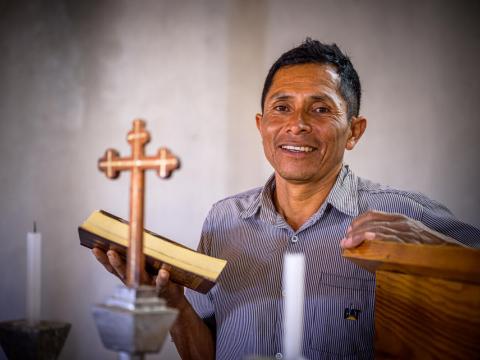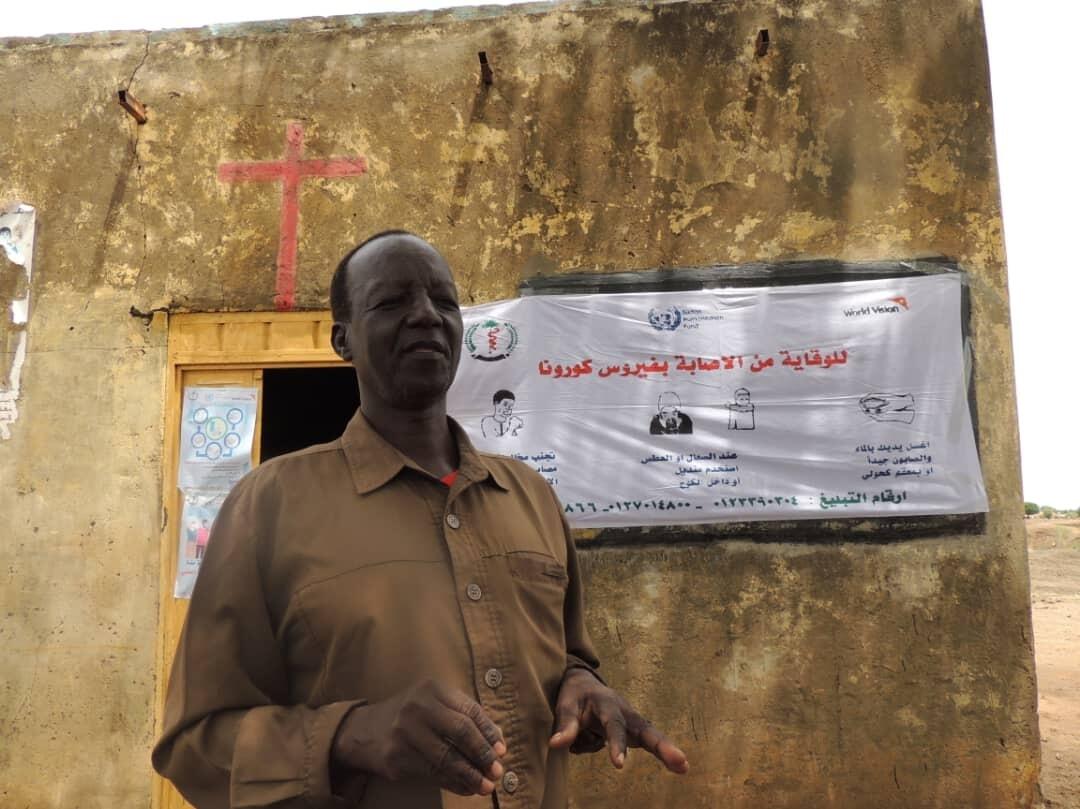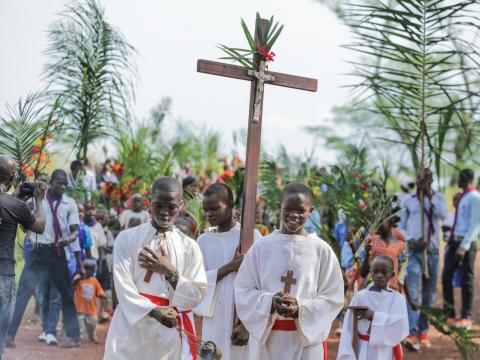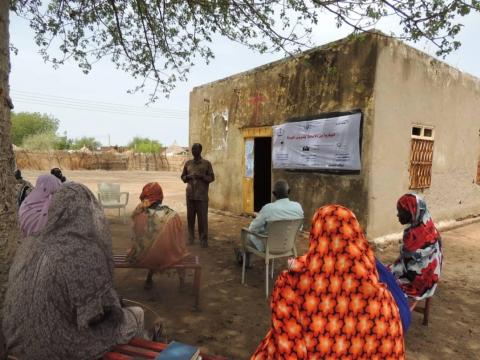
The invisible face of a COVID-19 hero
By Esther Lehmann-Sow
What image comes to your mind when you think about COVID-19 vaccine rollout? Masked health practitioners injecting needles? Politicians with rolled-up sleeves visiting hastily constructed vaccination centres? The image that comes to my mind is of Pastor Boutros in a small church in rural Sudan.
Displaced by conflict, Pastor Boutros has found a home for now in the Blue Nile. He is on the field frontline of this epidemic, leading his congregation through this pandemic – it’s not the first humanitarian crisis he and his parishioners have experienced, but what makes it different is the pastoral role he plays. To help counter misinformation, calm fears, and ensure people have access to good health information, Pastor Boutros has been incorporating COVID-19 risk prevention messages in his religious teachings and community mobile campaigns since attending a World Vision workshop focused on information, education, and communication.

“We use Sundays not just for prayers," says Pastor Boutros (pictured). They "also allocate an hour for education sessions on COVID-19 and for community members to share openly their challenges. A lot has to do with changing people’s behaviours.”
Pastor Boutros is part of an invisible population of faith leaders, including pastors, priests, and imams and others, active since day one of this pandemic, in countries and communities around the globe.
Faith leaders are the credible voices in so many of the communities we work with around the world. They are indispensable partners and message carriers, to increase awareness, improve uptake of recommended behaviour, and decrease stigma. Evidence from previous epidemics of the importance of mobilising faith leaders early on, from dignified burials in Sierra Leone during the West Africa Ebola Outbreak (2014-2016) to the outbreak in DRC in 2019. And our latest research, using the fantastic Barrier Analysis behaviour study approach, confirms it – communities trust what their faith leaders say when it comes to vaccines.
It’s not hard to understand why this is. The majority of people in the world have a faith, and in the countries where World Vision works, faith is a part of daily life. Faith leaders are embedded in communities. The credible presence of faith leaders and faith communities far outlasts the cycle of governments, political parties and organisations. Faith leaders are the last to leave, first to be with people in times of need – we have seen this so much during this pandemic.
As a Christian organisation, we have spent decades building meaningful, trusted relationships with faith leaders who have served on the frontline of responses to HIV and AIDS, Ebola, and Zika. Through this, we have seen mounting evidence of faith leaders’ critical role in addressing each health crisis we have fought together.
We are blessed to have been able to build a vast network over the past decade, and now have more than 450,000 faith leaders equipped to respond to child well-being challenges in their communities. Since the outbreak of this pandemic, a year ago, we have partnered with more than 124,000 faith leaders to disseminate accurate health information, care and prevention.
In an unprecedented era of misinformation, disinformation, conspiracies, and confusion, these faith leaders play a pivotal role in leveraging their platforms to share accurate, fact-based information about COVID-19.
They are well-positioned and trusted in their communities, enabling them to identify challenges, design solutions, and promote ways of overcoming barriers that keep children and young people and their communities from accessing vital health care.
Our latest report looks at these issues in greater detail, making the case for the role faith leaders can play in the support of COVID-19 vaccine programmes. There is no time to waste. Vaccines have given us a possible way out of this pandemic, but we are only halfway there. Without widespread uptake of vaccines around the globe, we will not escape the pandemic or its devastating consequences.
We must respond to the dramatic impact that COVID-19 is having on the world’s most vulnerable children and young people, who are facing increased violence, disruption to their education, and devastated economies, driving child labour and child marriage. Until the world is vaccinated, the futures and freedoms of children and young people, the vulnerable, and our own families hang in the balance. Against this backdrop, faith leaders have a critical role to play in our collective goal to end the pandemic. They need and deserve our support.
Esther Lehmann-Sow is World Vision's Partnership Leader for Faith and Development. Follow Esther on Twitter @SowEsther and read the report Faith In Action here.

